Confession: I am not an ethical traveller.
I say this because when I think back over my travels, there have been many situations I probably should have questioned more than I did at the time.
Nowadays, ethical travel is a big topic of conversation. From using bamboo straws and reusable water bottles to avoiding elephant rides and photo opportunities with drugged tiger cubs, there’s a conscious effort to be the most responsible and ethical travellers we can be.
But what if you’ve already committed an ethical travel mistake in the past? How are you supposed to feel then?
I’ve wrestled with my own ethical travel mistakes for years. I haven’t talked about them online because I’m embarrassed and ashamed of the activities in question – but also because they highlight what a naive and uneducated traveller I was.
I remember being shocked to learn about the extent of England’s historically atrocious behaviour in India from a young, passionate tour guide on a roof in Rajasthan – because we were never taught about the topic in school. I remember an ex-boyfriend being incredulous that I barely knew anything about the Palestinian conflict while he’d been attending protests and marches for years.
But it’s not just me. I also remember meeting an American girl in Nepal who only realised the US army had actually been fighting and killing people in Afghanistan when she saw footage appear on the international news in another country. She’d only ever seen a positive spin on the war via her local news channels at home, and needed her traveller friends (who weren’t American) to verify this information for her before she could believe it.
We don’t start out in life understanding everything. We have to grow and learn as we go – and that’s why travel can provide such a valuable education. It’s how we develop humility, empathy, and the ability to admit that we sometimes make the wrong choices.
So what do we define as an ethical travel mistake?
Making an ethical travel mistake means participating in the exploitation of those who can’t defend themselves or who are lacking a voice. That means children, marginalised communities, animals, the environment: all of whom are intensely vulnerable when it comes to tourism.
Sometimes it’s about being involved in an exploitative activity, but it can also be as simple as observing it, or not speaking out against it.
Of course, we never want to admit that our adventures around the world could be causing harm – but sadly the tourism industry is rife with unethical practices, most of which continue to exist because they make money for somebody. Nonetheless, it can sometimes be difficult to identify what’s unethical until it’s already happening.
Read more: Eco-friendly products for the traveller in your life
Do I regret being part of the following unethical practices? Absolutely. Would I take it all back? Well, I’m not entirely sure. Each experience has provided me with such a steep learning curve in such a blunt and personal way that I could never forget them.
Looking back, I now know first-hand why they’re so wrong. But I didn’t know at the time. Guilt comes from hindsight – and from the unsettled, slow dread that crept over me when I was in the following situations.
Although it’s uncomfortable to revisit these memories, it’s necessary to admit where I’ve gone wrong. Hopefully it will help other people make more ethical decisions when they travel – and at the very least, it allows me to atone for the mistakes I’ve made by explaining how I could have done better!
Seven ethical travel mistakes I’ve made in the past
Pin me for later!
Animal Exploitation
Along with the advent of social media, the seemingly endless desire for the perfect cute animal selfie has skyrocketed.
Armed with selfie sticks and a ruthless resolve, it’s now commonplace to see tourists pursuing wild animals – like the guy I saw in the Galapagos Islands, who chased a wild turtle onto shore and shoved a GoPro into its face.
Yet when the animals have no way of escaping, it turns from harassment to exploitation. I’m talking about cramped cages in unsanitary zoos; ad-hoc photo opportunities with shady guys holding monkeys and snakes in Morocco; the chance to stroke a drugged tiger cub; even willingly being submerged underwater in a cage to face-off with a shark.
All this is exploitation in the name of entertainment – and nobody needs to interact with a wild animal to be entertained.
The only way to lessen tourism-driven animal cruelty around the world is to actively refuse to participate in these activities; to report them to local authorities and your country’s embassy; and to make sure your travels don’t support animal suffering.
1. Riding elephants in Nepal
Back in 2012, when I rode an elephant at Chitwan National Park in Nepal, I was a fresh-faced backpacker who’d done very little research on her destination. I’d always loved elephants, and thought this was a fantastic opportunity to get up close and befriend them.
Elephants are only ridden at Chitwan as a way to try and see Indian rhinos and Bengal tigers – both species are highly endangered and reside in Chitwan’s buffer zone. Still, I was a little concerned that so many people were being asked to board a single elephant: groups of four, five, and even six slotting their legs around the wooden frames while ropes pulled and strained under the elephant’s haunches and underneath their tails.
As our line of elephants lumbered off into the forest, I felt the combined weight of my friends and I, our precarious seat slipping from side to side on this creature’s back. For much of the excursion I was preoccupied by what I was actually participating in – and later, while walking around the Chitwan site, I saw a young elephant with its leg chained to a wooden post and felt like I’d done something very ethically wrong.
Why riding elephants is unethical
Whether they’ve been born into captivity or not, an elephant is still a wild animal and requires ‘breaking in’ before it succumbs to human control. This is achieved with the use of hooks, sticks and spikes, often wielded by a mahout who assures tourists that it’s not painful.
Elephants are restrained for much of their day to limit their movement, are fed a limited diet and are often isolated from others, when they’re a very sociable species who love to roam.
The ethical traveller’s way to see elephants? Go on safari and watch them from a distance in their natural habitats.
Further resources:
2. Swimming with dolphins in Cuba
I knew the ethics of swimming with dolphins was murky at best, yet the little girl in me had secretly always thought it sounded exciting. So when my travel buddy in Cuba suggested we head to a local marine park for the experience I wilfully abstained from doing any research and went with her.
We watched a dolphin show – the first I’d ever seen – where a group of these beautiful creatures held flags in their mouths, balanced their trainers on their noses and literally jumped through hoops. I kept telling myself that the two male trainers seemed to really love the animals, but the little voice in my head kept questioning how I could honestly make that judgement.
When it came time for us to get in the water I pushed my misgivings aside again, telling the little voice to shut up – and as we were shown how to clap with the dolphins, to accept kisses on our cheeks and to even hold their fins as we were swept through the water by their surprisingly strong bodies, I knew this was something I should never have done.
Why swimming with dolphins is unethical
Unsuspecting travellers may not realise the negative connotations of swimming with dolphins because they’re a curious species which often chooses to interact with humans when in their natural habitat (there are plenty of YouTube videos showing excitable kayakers and swimmers who’ve been approached by a dolphin pod).
But this doesn’t excuse swimming with dolphins in captivity. Here they have no way to escape.
Dolphins are captured illegally, ripped away from their mothers and often killed before even arriving at a marine park or aquarium because they’re not deemed ‘pretty’ enough for public viewing. Once captured, they’re confined in cramped enclosures, forced to learn tricks and many die prematurely as a result of their mistreatment.
The ethical way to see dolphins? Take a responsible dolphin-watching excursion on either sea or land, instead of in captivity – and keep your distance.
Further resources:
Voluntourism
As long-time readers will know, I volunteer a lot when I travel – and I’m well aware of how delicate a topic international volunteering is.
When a tourist volunteers their time and effort to a cause, usually a charity or non-profit organisation, they feel a sense of altruistic achievement that they’re ‘doing some good’. But the voluntourism industry is woefully unregulated, allowing for a myriad of problems.
Quite apart from questioning how much ‘good’ a western tourist can ever actually achieve in a short period of time with little of the requisite skill-sets, there’s also the question of what actual damage they’re causing. Voluntourists could be arriving into a community that’s unprepared for/unenthused by their presence; taking jobs which local skilled workers could do better at (and be paid for); or perpetuating the idea that these projects couldn’t operate without foreign help.
And of course, none of these volunteer projects actually address the systemic problems which cause humanitarian crises in the first place.
We feel the need to get our hands dirty and to personally participate in ‘changing the world’ – when often it’s more advisable to donate money to those who know what they’re doing and have made a long-term or life-long commitment to the cause in question.
Before embarking on any volunteer project, it’s crucial to ask yourself honestly what you’ll be able to offer – and asking your intended organisation the same thing.
3. Volunteering at an orphanage in Nepal
The Helping Hands Orphanage in Kathmandu was housed in a modest building. Kamala, the ‘Auntie’ who ran the place, only had room for eight children to sleep on bunkbeds in two shared rooms: one for the boys, one for the girls.
Technically speaking it wasn’t an orphanage, because when I volunteered for a month in 2012 at least half of the kids staying there had living parents who’d either been abusive and violent or had simply run out of money to sustain caring for their child.
My days at Helping Hands were simple. Each morning I helped the kids with their homework, fixed their ties and walked them to the local school (where I’d also been coerced by the headmaster into teaching conversational English classes). In the afternoons I did more homework, played games and ate dinner.
So why was this an unethical experience? On the surface, it didn’t seem problematic. What alerted me was an unfortunate incident with one of the kids, who ended up stealing money from both me and another volunteer on multiple occasions. After he was caught in the act Kamala sent him back to his abusive father in the Kathmandu Valley, telling us that she couldn’t afford for him to negatively influence the other children in her care.
“For now, he steals money. When he’s older, what if he steals cars? What if he hurts someone?”
It was the first time I’d realised how hopelessly out of my depth I was as a volunteer, and how safe my own upbringing had been in comparison to the children I’d assumed I could ‘help’.
Why orphanage tourism is unethical
It’s traumatic for any child to get attached to volunteers who then leave, but it’s particularly hard for children who are already vulnerable. Orphans should be cared for by long-term, professional staff who speak the same language, not subjected to a repeated cycle of abandonment.
Moreover, foreign volunteers are a business, perpetuating the need for more volunteers, which means many orphanages never empty – and some, like the famous case in Cambodia, actively pay families to borrow their children. These kids miss out on their education as a result.
Although many volunteer companies are more scrupulous about these kinds of projects, there are still plenty out there who don’t seem concerned with the welfare of their kids.
The way to find an ethical volunteering project with local children? Don’t be their emotional support system! Help out at a community project or after-school club, or work as a teacher (if you have sufficient training).
Further resources:
Visiting politically controversial countries
In today’s world, there’s no doubt that travel is inexorably tangled up in politics. The more educated you are about a potential destination’s politics, the more uncertain you may become about visiting.
Some of these decisions may be predicated on your personal beliefs – like not travelling to Russia on the basis of their government’s homophobia, or not travelling to Israel because of the Palestinian conflict.
“But surely by extension you can’t travel anywhere?” is a common response to these views – and there’s truth in that. The option to boycott a country based on its denial of democracy, human rights violations, dictatorships or unethical practices is always valid, particularly as the withdrawal of tourist money can make a big impact.
However, refusing to visit a country usually affects its vulnerable citizens the most – and at least visiting allows you to spend money at a grassroots level, talk to locals and learn their perspective first-hand.
4. Being unaware of human rights violations when travelling in the Philippines
In 2016, President Rodrigo Duterte began his presidency by launching a nationwide war on drug pushers and users, which resulted in an estimated 13,000 deaths in a single year.
Yet Filipino politics wasn’t something I researched before spending ten days exploring the islands on a press trip sponsored by the tourist board: spotting tarsiers, dancing on riverboats, riding ATVs through the jungle and eating our weight in local food.
A few months after my trip I was in Italy at a friend’s house. We sat at her kitchen table over two plates of pasta and a bottle of wine, and I talked about my recent travels. I had so much positivity about the Philippines – “It’s so lovely! Everyone smiles there!” – only to hear my friend respond with, “Isn’t that where tons of massacres happen?”
My skin grew cold. I looked at her with a creeping sense of shame. “I didn’t know…”
Why not being politically aware while travelling is unethical
The Philippines is just one example I could have chosen. The sad truth is that most countries are involved in something unpleasant – take Japan’s whaling industry, Cuba’s dubious government, China’s suppression of activists, or the US’s separation of migrant families.
Before flying to the Philippines – in fact, before I even accepted the press trip – I should have done enough research to be fully aware of the country’s political landscape. I should have known where my money was going, and I should have questioned whether my choice to travel with the tourism board meant I was effectively supporting the government’s actions.
The ethical way to travel politically? Educate yourself before you travel, and stand by your views & beliefs.
Further resources:
Cultural voyeurism & poverty tourism
Voyeurism has become an increasingly common part of our daily life. With every social media app, we’re consuming content about other people’s lives and allowing our own lives to be consumed.
It comes down to curiosity – and when we travel, we feel that same pull to see and understand how others live. But while learning about other cultures is a beautiful thing, there are situations that can feel a bit like objectification.
‘Poverty tourism’ or ‘slum tourism’ is designed to show visitors around an impoverished neighbourhood or community so they can see the ‘non-touristy’ side of that city or country. The benefits to this type of tourism? To show the positives of places otherwise reputed for their crime, poverty or general danger – but also, presumably, to make money.
The companies who run these tours insist that any profits are directed into the community, but it’s difficult to be sure when the very attraction depends on said community’s relative poverty. Surely if enough money was made there would be no need to draw in the tourists?
From a personal standpoint, it also feels disingenuous to treat local people as another ‘bucket list’ attraction, particularly without taking into consideration how condescending and rude that might be.
When tourism becomes voyeurism, it’s worth questioning who is actually benefitting from your visit or your ticket fee. Are you actively helping to support a vulnerable community, or are you just rubbernecking?
5. Visiting the Long Neck Karen tribe in Thailand
Towards the end of my travels in Thailand, I’d taken a day trip from Chiang Mai which explored the local area. We went hidden waterfalls, beautiful temples – and to a small village inhabited by people from the Long Neck Karen tribe.
After passing a small wooden donation box at the top of the near-empty street, we wandered past women wearing their signature metal neck rings while sitting dejectedly outside their houses, asking if we wanted to pose with them for a photo.
I felt supremely uncomfortable, like we as tourists were being invited to treat these women as zoo animals. Our tour guide for the day had told us only the briefest information about the Karen tribe so I had no awareness of whether they actually wanted to be living here. As a result, it felt like complete exploitation, and after throwing all my spare change into the donation box I couldn’t leave fast enough.
Why it’s unethical to visit a local tribe’s village
The issue of visiting ‘display villages’ like these is a debatable one. I think it comes down to personal preference: although I really didn’t enjoy the experience, it’s equally easy to say that these villagers have chosen to put their homes on display and sell souvenirs to tourists, and thus it’s not an exploitative scenario.
Many of the Karen tribe have fled from their native Burma to settle in Thailand and their refugee status means they can’t find local work, so setting up tourist villages is potentially a good way to earn money. Unfortunately, the traditional metal rings the women wear around their necks are a surefire way to maintain isolation from the Thai people – and as long as tourists keep paying to see them, girls as young as five or six years old will still be cajoled into wearing these neck rings throughout their lives.
The ethical way to see how people from different cultures live? Volunteer at a homestay and work alongside them instead of simply ‘observing’.
Further resources:
6. Visiting the Rocinha favela in Rio de Janeiro, Brazil
I haven’t visited the slums in Mumbai or the townships in South Africa, but I did spend a day wandering through Rocinha, Rio’s biggest favela in Brazil. I was there to visit a blogger friend who worked at a Rocinha-based NGO – and yet I was also intrigued about spending time in a place many tourists wouldn’t dare to enter.
The favelas are infamous for their crime, violence and police corruption. And it’s not like I wanted to expose myself to any dangerous situations! So why was I so keen to visit? Ultimately I wanted to know what a place like Rocinha was like; to gain a glimpse into an environment I’ll probably never call ‘home’.
As expected, I really enjoyed my visit and never felt unsafe (thanks to Marcela, a young Brazilian girl who showed us around the favela all afternoon and took us back to her house for dinner). When I left Rocinha it was with the knowledge that this favela is home to a strong, supportive community. But I did wonder whether my visit could be construed as ‘slum tourism’. Did the inhabitants of Rocinha see visiting tourists as intrusive and voyeuristic?
Why visiting poor neighbourhoods can be unethical
I didn’t pay anyone to visit Rocinha, but those who join a tour need to ensure their money is going to help the people living there, and be sure of their chosen tour organiser’s ethics.
In this article, Ko Koens, the author of ‘Slum Tourism: Poverty, Power and Ethics’, says:
“There are various things that tour operators can do. It is important that they try to understand the slums before they set up their tours, to ensure tourism is wanted and appreciated by locals. They can work with people from the slums to deliver the tours, and ensure tourists spend money at local attractions.”
He also advocates any tourist asking permission before taking a photo, and actively engaging with locals to hear their stories.
The ethical traveller’s way to visit a poor neighbourhood? Go with a local guide, and ensure any money goes directly to the community.
Further resources:
Not being environmentally conscious
We all know how bad travelling can be for the environment. Any form of transportation that burns fossil fuels is contributing to climate change; single-use plastic bags and straws lead to billions of tonnes of landfill; and there’s no way that thousands of tourist feet stomping around any famous natural site isn’t contributing to its destruction.
Yet none of us are going to stop travelling any time soon. So what can we do about our environmental footprint?
Offsetting your carbon emissions when you fly is a good place to start, as is travelling overland as much as possible. Don’t buy bottled water or accept plastic bags or straws, turn off lights and appliances when you’re not using them, and buy local souvenirs and products instead of imported ones.
Most importantly, travellers should be aware of how green their chosen destination is. Places like Costa Rica, Slovenia, New Zealand, Kenya and the Maldives all focus on ‘sustainable tourism’, where the aim is for a tourist’s visit to only make a positive impact on the local environment, society and economy.
Sadly if we make too much of a negative impact, we risk ruining the very place we want to visit – and these very real consequences can be seen all around the world.
7. Diving above the devastation of the Great Barrier Reef
When I visited Australia in 2017 I was so excited to scuba dive for the first time – and amongst stunning marine life at the Great Barrier Reef, no less! Yet what I actually saw was sobering. Instead of the shoals of colourful fish I’d expected, all I could see was a few fish darting around the endless amounts of bleached white coral – and after speaking to local divers, it seems like this is becoming a much more common sight.
I don’t think my visit to the reef was necessarily an ‘ethical mistake’, but there’s no denying how shocked I felt. I’d always imagined the Barrier Reef to be this magical place and I truly had no idea how bad the damage really was.
Why visiting delicate ecosystems can be unethical
Thanks to pollution, overfishing and a climate-change-induced rise in water temperature, large sections of the Great Barrier Reef’s coral are being bleached.
So should we be staying away from these delicate ecosystems altogether?
Well, one of the best outcomes from tourism is knowledge. Most people who see the bleached coral leave with a personal interest in the reef’s preservation, and help to spread awareness back home. There’s also the undeniable profit which tourism brings in: without it, places like the Great Barrier Reef are vulnerable to exploitation from gas mining and local land-based industry.
Sustainable tourism practices are the best way to visit the Great Barrier Reef, as well as reading up on responsible reef practices before you arrive.
The ethical traveler’s way to see the Great Barrier Reef? Find an eco-conscious tour/trip, and don’t touch the reef!
Further resources:
How to become a more ethical traveller
As travellers, we are always learning.
We get so excited about seeing, doing and experiencing everything the world has to offer that we often forget to step back and see the bigger picture. We have to ask questions about how our behaviour affects the world at large.
These are the steps to bear in mind if you’d like to become a more ethical traveller:
- Do your research. Educate yourself about the activity at hand, the political climate of the country, the environmental impact of your visit and the sustainable tourism practices of your destination.
- Ask questions. If you’re travelling with a company or organisation – or even solely at your accommodation – find out how they contribute to the local community.
- Consider the repercussions of your actions. What is your motivation for your trip, and is it going to be helpful to the people/animals/environment on the other side of the equation?
- Be willing to listen and learn. Humility is important, as is the ability to see yourself in a detrimental light if necessary.
In retrospect, I don’t feel guilty about these ethical travel mistakes I’ve made because I’ll do everything possible to ensure I don’t make them again. Moreover, it means I’m likely to make much more ethical choices going forward.
The world needs our respect – and as the tourism industry becomes more focused on sustainable, eco-conscious travel, the more chance we have to do the right thing. It’s our responsibility, after all.

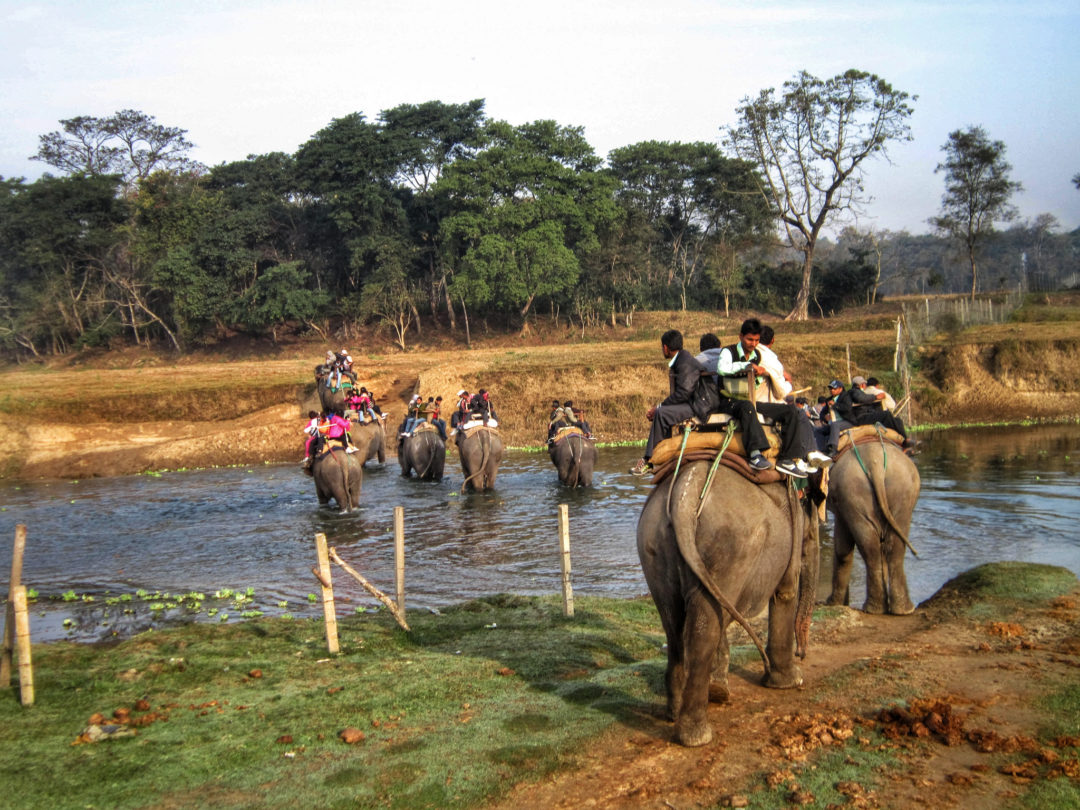
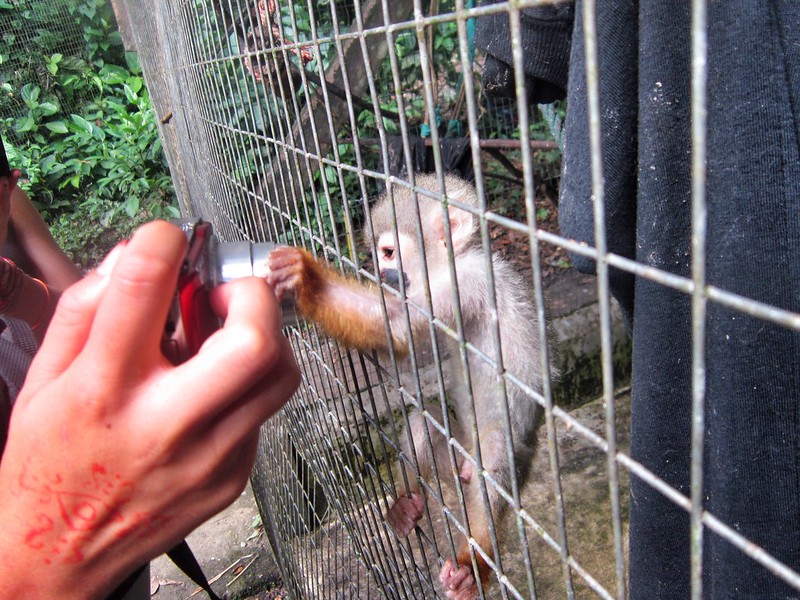
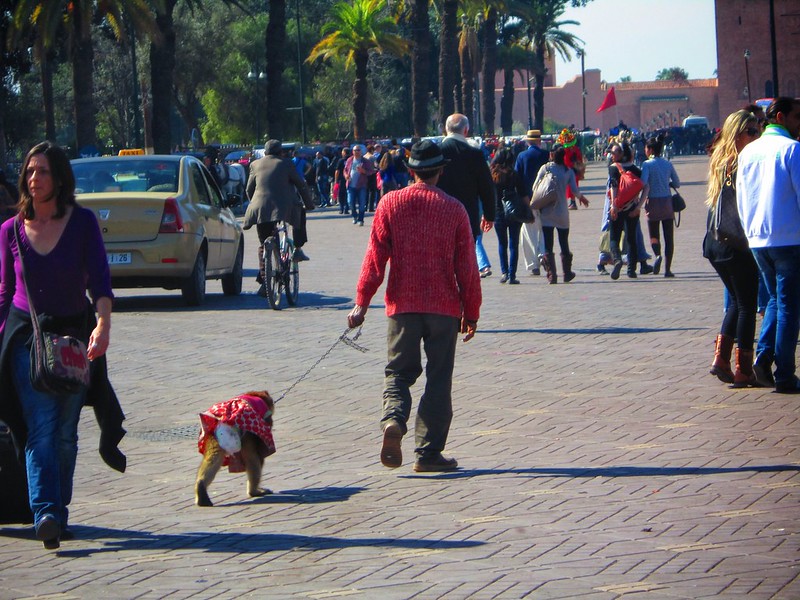

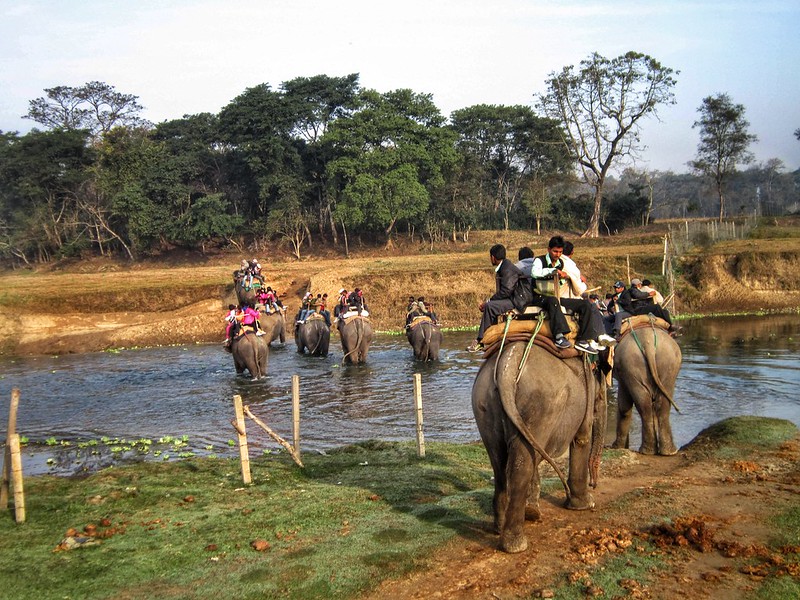
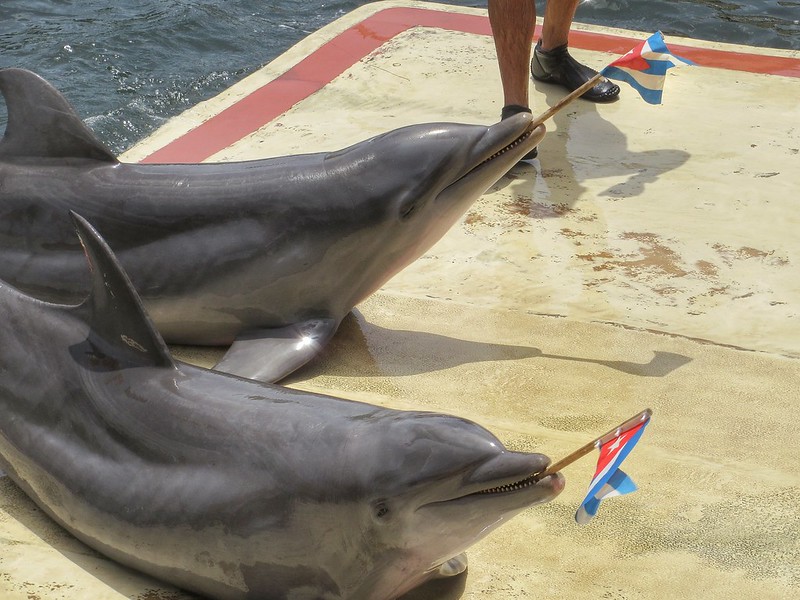
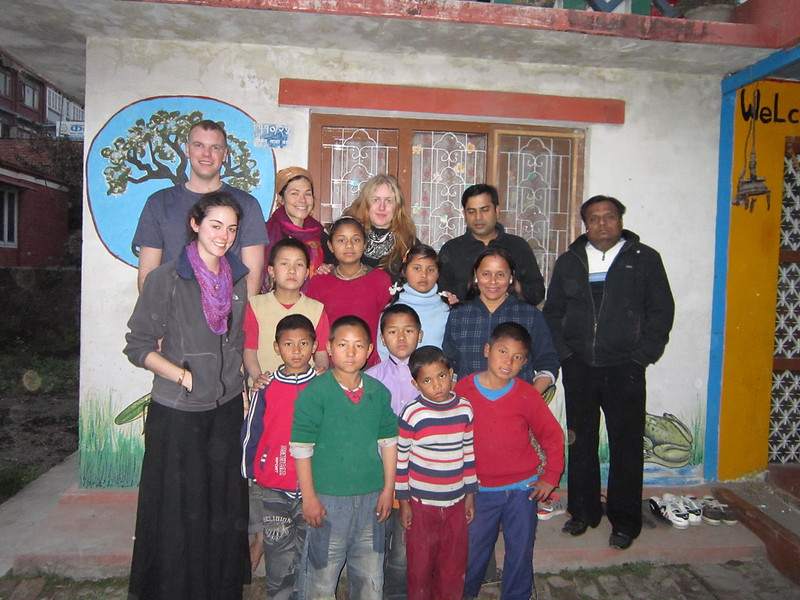
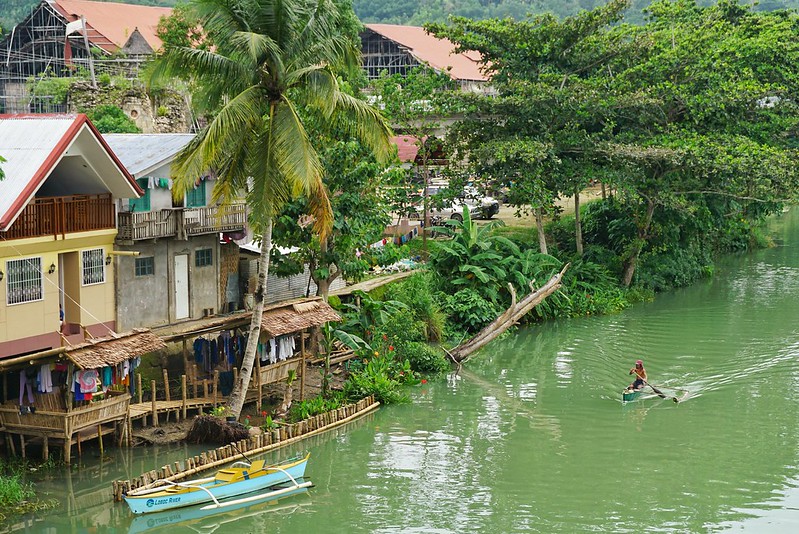
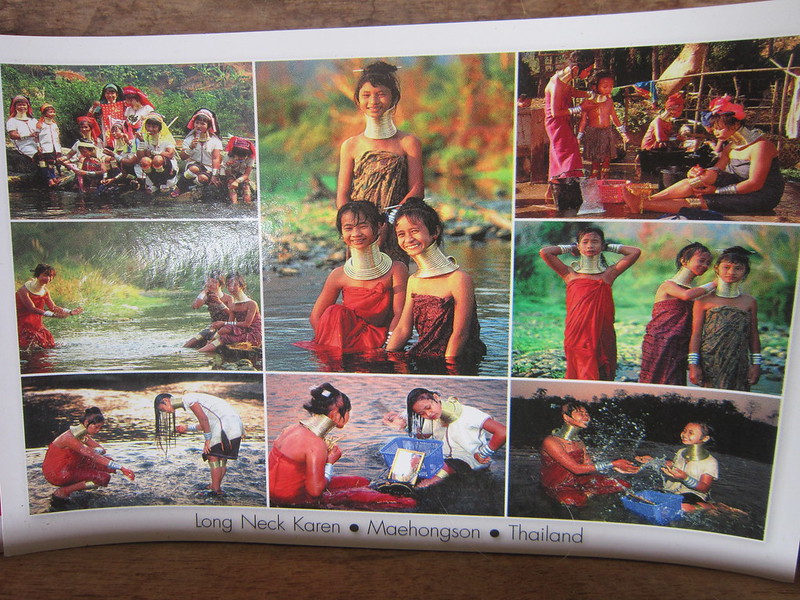
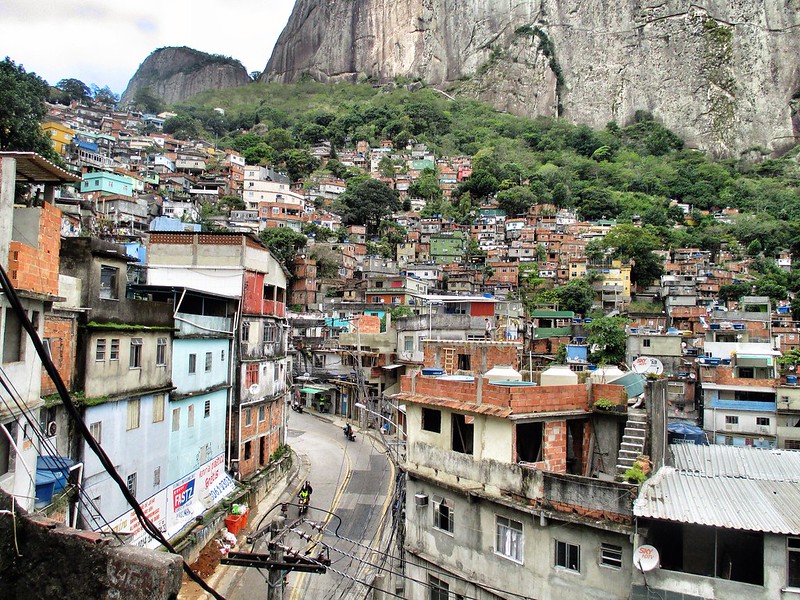
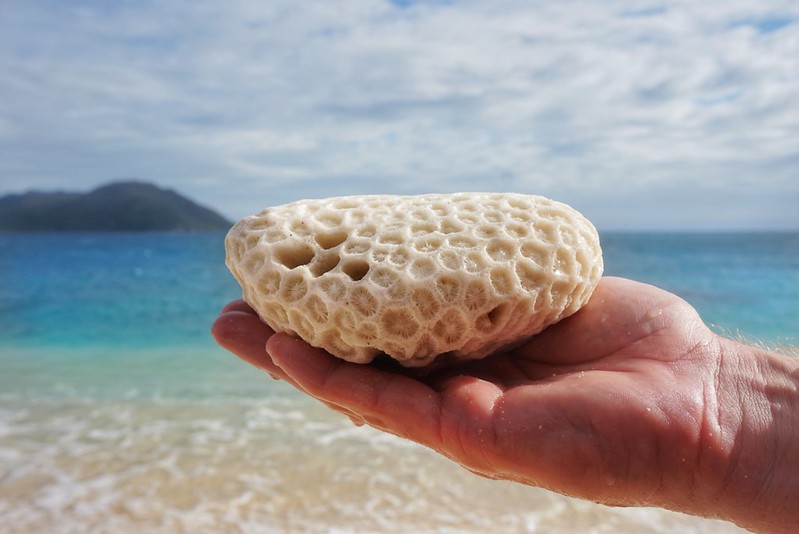
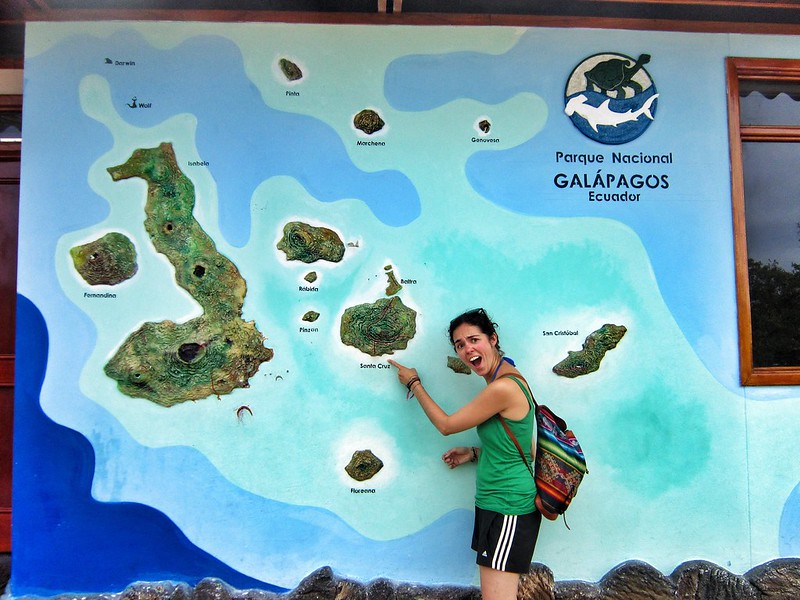
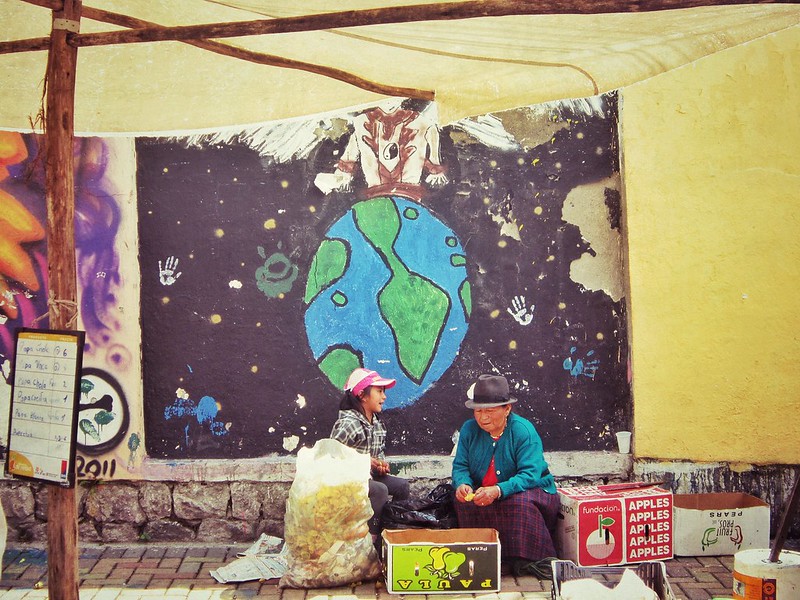
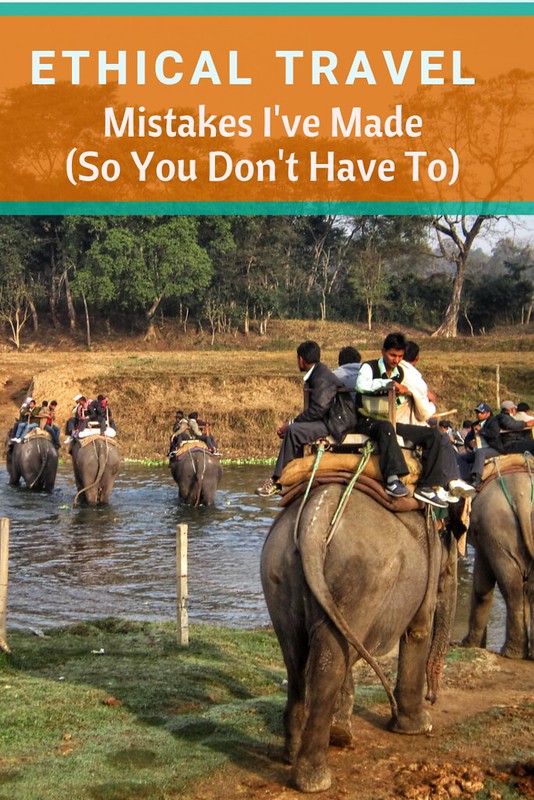
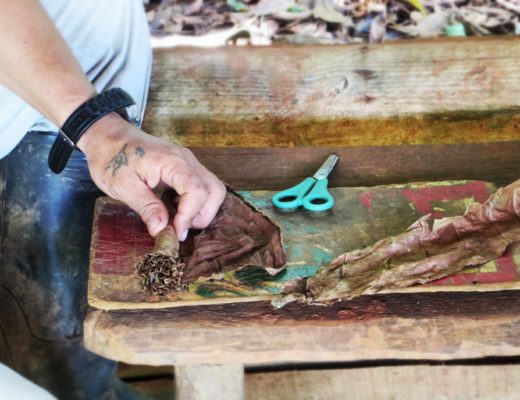
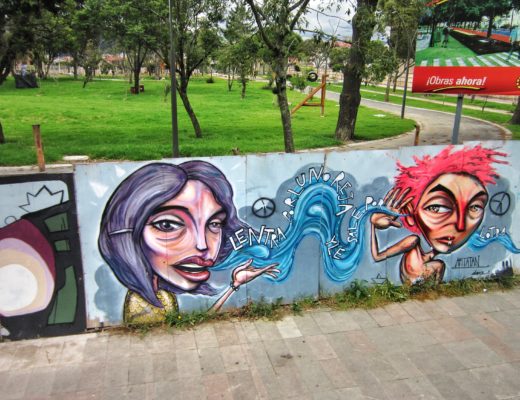
33 Comments
pickard50
November 15, 2018 at 5:00 amGreat article and honesty. Quite a few of us also,if we admit to being uninformed when traveling as to not exploit the unethical support unawares as you describe.
Your correct, hindsight does expose what we suspect maybe true, therefore as you say, research the matter for confirmation and how to excercise tourism ethically. Your travels indeed have exposed you to growing wisdom within you. This article is just awesome to read and of value
Flora
November 17, 2018 at 3:02 pmThanks so much for reading – I’m glad you feel the same way! 🙂
Elina
November 16, 2018 at 1:36 amAbsolutely loved this article! I don’t feel like your visit to Rocinha was slum tourism, you did it in a very respectful, ethical way. When I was in Rio I also stayed in a favela, Vidigal, which is one of the pacified ones and where they’ve already set up a few hotels and hostels. I would not have taken a favela tour but I felt all right staying in one, knowing I was more like a welcome visitor and less like a peeping tom. Oh, and I also rode an elephant and I feel horrible about it. Worse still, I had done my research and really didn’t want to do it but in the end gave in to peer pressure. It is legit still one of the biggest regrets not only on my travels but also in my life.
Thanks again for writing this!
Flora
November 18, 2018 at 10:34 pmThanks so much Elina! It sounds like you had a really good experience in the favelas – and you got to know the place properly by spending a lengthly time there. Like you, I wish I hadn’t ridden those elephants though!
Sammi Eubanks
November 17, 2018 at 4:46 pmGreat article Flora! I read a book called Toxic Tourism when I was at school and it really changed the way I see some of these travel practices. It’s always unfortunate to realize when you’ve been practicing poor travel choices but I appreciate you sharing what you’ve learned. Keep up the good work!
Flora
November 17, 2018 at 8:21 pmThanks Sammi! It’s impressive your school was teaching you about the downsides to tourism when you were still a child – alas I think many people don’t get to learn those lessons until it’s too late…
Carly | FearlessFemaleTravels.com
November 17, 2018 at 7:45 pmI can relate about the dolphins in Cuba! I wanted to do a snorkeling trip there, and I told my tour operator that I was ONLY willing to go on a snorkeling trip that didn’t include a “swimming with dolphins” component. They promised me that my tour was only snorkeling – and then of course its first stop was at a dolphinarium where everyone jumped in the water to line up for the chance to touch a dolphin. I have never been so angry!
Flora
November 17, 2018 at 8:23 pmWoah that’s so shameful! Particularly when you’d actively requested a trip without a dolphin-touching experience. Sadly so many of these companies make way too much money from it to even consider stopping – it’s going to take a blanket ban to really put an end to the practice, I think.
Lieselot
November 17, 2018 at 8:24 pmThanks for sharing Flora. This is such an important topic and too many people are ignorant when travelling. I cringe every time I see animals abused 🙁
Flora
November 18, 2018 at 10:35 pmIt’s definitely cringeworthy – but hopefully more people will keep researching these practices before embarking on them!
Kristy
November 17, 2018 at 9:18 pmWow, this is such a great article to explain both how certain attractions or experiences might be unethical and better alternatives! On my first overseas trip (back before there were lots of bloggers telling everybody not to do certain things) I did some things that I now wish I had known more about and not done. I can’t rave about this article enough, so well-written and I love all your great links to further writing and more ethical choices!!
Flora
November 18, 2018 at 10:37 pmI’m so glad you found it to be a useful article Kristy! I really wish more bloggers had been more vocal back when I first started travelling too – but hopefully it’ll keep being discussed enough for other travellers to not make our mistakes 🙂
Dylan
November 17, 2018 at 11:50 pmThank you for taking the time to research and write this– not to mention share it, which I imagine must have been at least a little nerve-wracking. I really appreciate it. I learned a bit, and I can definitely see my past self in some of the examples you shared. At least awareness is growing– thanks in part to articles like this!
Flora
November 18, 2018 at 10:39 pmI was definitely a little worried to hit publish on this one! But the reception seems to have been pretty positive so far 🙂 Glad you enjoyed it Dylan!
Amanda Williams
November 18, 2018 at 12:10 amThanks for this post, Flora! I think most of us have made ethically questionable decisions on our travels; it’s part of the learning experience that is life! The important thing is to be able to recognize them again in the future and hopefully make different/better decisions.
Flora
November 18, 2018 at 10:43 pmI totally agree, Amanda! Fingers crossed I don’t make any more ethical mistakes to add to this list in the future 🙂
rileysroves
November 18, 2018 at 12:27 amREALLY great post. Thoroughly enjoyed reading it. I’m always looking for ways to make my travels, and general lifestyle, more sustainable. Thanks for fueling the fire!
Flora
November 18, 2018 at 10:40 pmAww thanks so much Riley! It’s really lovely to hear such a positive response to this article 😀
https://notaballerina.com
November 19, 2018 at 10:07 amWhat a great summary – I have slowly also been learning all this stuff over the last few years and this is one of the best overall summaries I’ve read of how to be more ethical when we travel.
Amanda
November 19, 2018 at 10:08 amWhat a great summary – I have slowly also been learning all this stuff over the last few years and this is one of the best overall summaries I’ve read of how to be more ethical when we travel.
Flora
November 20, 2018 at 3:31 pmI’m glad you agree with what I’ve said, Amanda!
Beata
November 26, 2018 at 10:45 pmGreat work! It is really refreshing to see more and more travelers being ethical. The race for more ‘interesting’ picture and more money is making a travel industry as one of the most ‘dirty’ one.
Flora
November 27, 2018 at 1:37 pmI totally agree – Instagram is definitely changing the way many people travel nowadays, and it’s not necessarily for the better. Being aware of our ethical impact as travellers is more important than ever now, I think!
Dominique
November 27, 2018 at 8:42 amIt’s very rare that I read a blog post as honest as this one. Not only was this informative, but you made the choice to be honest about your own past regrets while traveling. Much respect!
Flora
November 27, 2018 at 1:38 pmThanks so much Dominique! I’m glad you enjoyed it 🙂
scott
November 28, 2018 at 11:43 amThank you so much for sharing Flora. I upset every time, when I see animals abused.
Divya
December 1, 2018 at 2:19 pmGreat article, Flora. It’s very rare to find good and fresh writing in the industry these days. Besides, I like how the post is introspective and focuses on your mistakes to bring such important issues in the light.
sinead
December 3, 2018 at 4:47 pmExcellent, comprehensive and honest article on a topic we have considered many times, especially as we travel with children who often notice/pick up on things quicker than adults do. Appreciated your honesty and thoughtful links
Ryan
December 12, 2018 at 12:58 pmThe Great work..I’m really happy to read this pots. Well information say thanks to you for this post
Avril Dutheil
January 12, 2019 at 1:13 pmDear Flora, I’m a traveller and a documentary filmmaker currently in Vietnam and working on the issue of the impact of tourism on the environment and local communities.
Given this dual relationship with the communities and places I visit, I’ve been feeling kind of bad about myself : yes i’m here to share knowledge about the situation, to help people support the right causes and make sure that their travels contribute positively to local communities, but at the same time, I’ve flown all the way here, I consume bottled water and so on.
This had made it very difficult for me to enjoy this trip to the fullest and so I’ve started researching what other travelers think about that issue. I’ve stumbled upon many superficial articles. I don’t blame anyone, but it seems to me that, as a whole, the traveling community hasn’t yet grown fully aware of the impact tourism can have/has on local communities.
Your post, on the other hand, seems much more researched and complete than most of the ones I’ve seen so far, and I think that’s
encouraging and that it tells that you’re really trying to learn from your experience and mistakes, and I respect that.
There’s one topic I feel like you haven’t addressed in your post though, and I’d like to get your view on the topic : the mere existence of tourism in a given place can changet the social and economical landscape of a community.
Simply put, when people realise they could benefit from tourism by setting up attractions and providing accomodation, they naturally turn towards these sources of revenue, especially since they can sometimes pay much better than other traditional jobs.
In itself, that isn’t unethical, but the consequences of that dynamic can be : if you take Vietnam, there’re hundreds of examples of villages which featured traditional craft such as pottery or broidery, which simply disappeared over the course of a few years when tourism got to these places. Which it did because those crafts and skills existed in the first place !
Unless there are communal systems to redistribute the wealth generated by the influx of tourist money in those communities between those who practice traditional skills and those who cater to the needs of tourists, I can hardly imagine a way to frame tourism in those communities as ethical.
What do you think ? Is there still a way to visit these places without causing harm ? Do you think tourism should refrain from investing these places at all ? Do you know any community which has developed a redistribution system to reap the benefits of tourism whilst preserving their heritage ?
I’d love to have your view on that issue, and I’m looking forward to your reply.
Travel interview: Flora from Flora The Explorer - RealWords
January 14, 2019 at 11:11 am[…] spoken about easy ethical mistakes that travellers can make on their journey, and we thought this was a great article. Are there any specific ones that you […]
Aparna Sisodia
February 1, 2021 at 5:42 amGreat Post n innovative work.. after reading the post can checklist the ethical mistakes not to be made. Very informative blog for the travelers.
Rakesh Bagh
September 4, 2024 at 3:23 pmI really appreciated reading “7 Ethical Travel Mistakes I’ve Made – And How You Can Avoid Them.” Your honesty and reflections on your own experiences make this blog incredibly relatable and valuable. It’s a great reminder of the importance of being mindful travelers and respecting the places and cultures we visit. The points you shared are practical and helpful for anyone looking to travel more responsibly. Thank you for shedding light on these common mistakes and offering insightful tips on how to avoid them. Your blog is a great resource for all of us who want to make a positive impact while exploring the world!